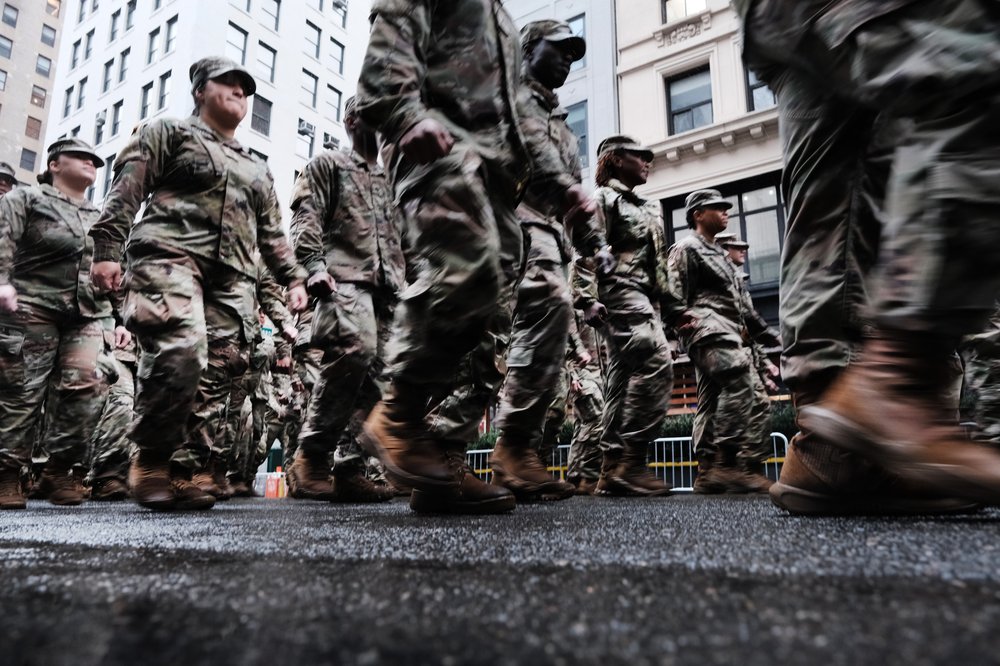NY vets are reporting higher rates of disabilities, more depression and PTSD
Oct. 21, 2024, 6:31 a.m.
Advocates for veterans said the increases were likely the result of new disability benefits that have led to more thorough screening.

New veterans returning home to New York from military service are about twice as likely to report having a disability today than they were in 2010, according to a new report on veterans’ health.
The report, prepared by the Rand research group and commissioned by the New York Health Foundation, also found that more veterans are reporting depression or post-traumatic stress disorder. The researchers said this could be attributed to higher rates of mental health issues or less stigma around talking about them.
Advocates for veterans said the dramatic increase in reported health issues was likely a result of new disability benefits that have become available in recent years and led to more thorough screening.
The findings are based on a recent survey of 1,122 veterans who returned home between 2018 and 2023. Nearly two-thirds of those surveyed said they had received a “disability rating” from the U.S. Department of Veterans Affairs, indicating some level of disability. A disability rating indicates the number and severity of health issues a veteran has that are linked to their military service, and that rating corresponds with a certain level of federal benefits.
In a similar 2010 survey conducted by Rand, only about a third of respondents said they had received a disability rating. The latest cohort of veterans also reported higher disability ratings, on average, than their counterparts 15 years ago, signaling more numerous and severe health issues.
Allison Jaslow, CEO of the advocacy group Iraq and Afghanistan Veterans of America, linked the changes to the passage of the federal Promise to Address Comprehensive Toxics Act of 2022. The PACT Act expanded benefits for veterans exposed to toxins via military practices such as burn pits, which are open-air pits used to burn trash and chemicals.
“There are vets who weren't even going to the VA before the PACT Act got passed, who enrolled in the VA and are now able to get care or screening for toxic exposure,” Jaslow said.
The PACT Act allowed for the “presumption” of exposure to toxic chemicals if a vet was deployed in certain locations at certain times. It also expanded the types of medical conditions that could be assumed to be linked to that exposure. The VA has identified a wide variety of cancers and chronic respiratory conditions that could be linked to burn-pit exposure and therefore qualify someone for benefits.
Jaslow said she believed the higher rates of depression and PTSD being reported could also be a result of greater awareness about mental health generally. “I don't know a veteran who doesn't know a vet who's died by suicide,” she said. “But I think there’s more awareness around the fact that we do need to get ourselves help if we are struggling.”
The Rand report found that about a quarter of veterans surveyed screened positive for symptoms of depression, and about the same share screened positive for symptoms of PTSD. That’s compared with about 16% of veterans screening positive for depression or PTSD, respectively, in 2010.
The share of veterans getting some form of mental health care increased to 32% in the latest survey, from 24% in 2010. But about two in 10 veterans still reported not getting needed mental health services, in some cases because they didn’t know where to find them or didn’t believe they would be effective.
Jaslow said the data points to a need for better education about the mental health services available. In New York, she noted, military veterans and their families can get free mental health care at NYU Langone’s Military Family Center — but not everyone who’s eligible knows about that option.
The majority of veterans surveyed said they generally preferred to go to a community provider rather than the VA for their health care needs. That preference was even more pronounced among younger survey respondents.
Using a mix of community-based services and VA care is common, especially with all the medical options available in New York City, said Derek Coy, a senior program officer at the New York Health Foundation who runs the organization’s veterans’ health initiative. But he said community providers are not always well-versed in the specific issues affecting veterans, whether those are mental or physical.
For instance, Coy said, community physicians might not ask female patients if they served in the military and “might not think that you would need a mammogram a little earlier than maybe a civilian would.”
Coy added that improving awareness of veteran health needs among community-based clinicians should be prioritized moving forward.
If you or someone you know is struggling with mental health, call the 988 suicide and crisis hotline or find resources online.
NJ commission echoes federal findings on botched veterans home response during pandemic